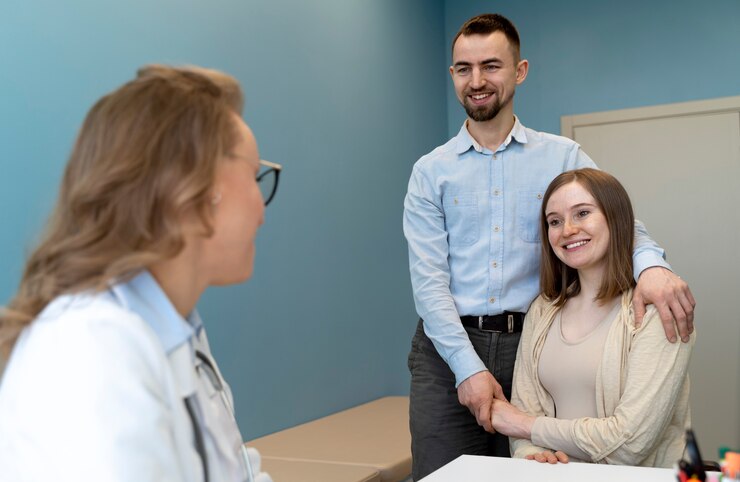Fertility clinics are specialized centers focused on supporting individuals and couples in achieving their family planning goals. These clinics offer a comprehensive range of services, including diagnostic assessments, therapeutic treatments, and supportive resources related to fertility and reproductive health. The primary role of a fertility clinic is to assess factors that impact fertility and offer pathways for building families, such as through in vitro fertilization (IVF). Here’s information about the role of these clinics in family planning:
Conducting Comprehensive Fertility Evaluations
When visiting a fertility clinic, patients can begin a detailed evaluation of their reproductive health. This structured process involves an in-depth review of each individual’s medical background, family history, and relevant lifestyle aspects. After the initial consultation, clinics may proceed with diagnostic studies to identify factors that impact fertility.
For women, blood tests assess hormone levels and ovarian reserve, while ultrasounds examine the uterus and ovaries. Hysterosalpingograms (HSG) are also used to check the fallopian tubes for blockages or abnormalities. For men, a semen analysis provides information on factors like sperm count, motility, and morphology. This structured process supports the creation of a personalized treatment plan tailored to the individual or couple.
Providing Advanced Reproductive Technologies
Fertility clinics offer a selection of advanced assisted reproductive technologies (ART); these options are helpful for those who face challenges in conceiving naturally. Common ART procedures include intrauterine insemination (IUI), where specially prepared sperm is placed into the uterus, and in vitro fertilization (IVF), which involves fertilizing eggs with sperm in a laboratory and transferring the resulting embryo(s) into the uterus.
Some clinics provide cryopreservation services, allowing for the freezing and storage of eggs, sperm, or embryos for future use. This service can benefit those who want to preserve their fertility due to medical treatment or personal circumstances. By offering these technologies, clinics support diverse pathways to parenthood.
Facilitating Third-Party Reproduction Options
Individuals and couples can contemplate third-party reproduction as a means of expanding their families. Fertility clinics facilitate access to donor eggs, donor sperm, and gestational carriers when needed. Clinics conduct rigorous screening and selection processes for donors, verifying specific health and genetic criteria. Coordinating the legal, medical, and ethical aspects of gestational carrier arrangements is another key function for clinics specializing in third-party reproduction. This coordination helps make sure processes move forward efficiently and in accordance with patient preferences.
Delivering Supportive and Educational Services
Navigating the logistical aspects of fertility treatment can be challenging, so clinics deliver fundamental support and education throughout the family-building experience. Some clinics provide access to counselors who specialize in fertility-related concerns, offering a safe space for individuals and couples to discuss their decisions. Educational resources covering treatment options, procedural steps, and expectations may also be available to patients. This approach enables those seeking fertility care to make informed, thoughtful decisions about their reproductive plan.
Visit a Fertility Clinic
Fertility clinics provide structured, resource-rich environments that guide individuals and couples through the family planning process. They deliver comprehensive evaluations, offer advanced reproductive technologies, facilitate third-party reproduction, and provide fundamental support resources. Some clinics also offer minimally invasive procedures, such as laparoscopy, to remove endometriosis lesions. If you’re exploring family planning or fertility support, contact a specialized clinic for additional information.


